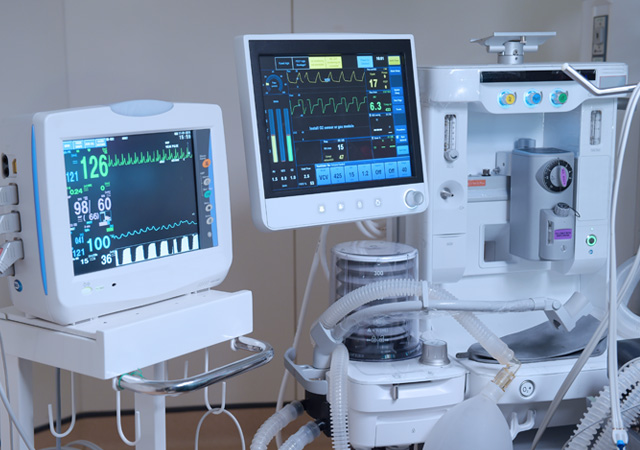Reproduction segment is currently blooming. The major factor responsible for its growth are improved access to fertility clinics and fertilization technology advancements. Different organizations have come forward to encourage people to avail reproductive assistance services. Angels of Hope Foundation, BabyQuest Foundation and Pay-it-Forward Foundation are some of the organizations in US that offer grants to make fertility treatment affordable as it is cost-intensive which discourages the general public. Reproductive outcomes from such services have been positive. This increases the adoption rate of assistive reproductive technologies like IVF and IUI. Technologies have significantly increased the number of treatments that are available for infertility.
Modern lifestyle induces productivity issues
In many economies across the globe, same sex marriages are made legal. Such marriages are eyed as prominent revenue source for the global assistive reproductive technology market. Latest Fact.MR report forecasts that the revenue of assistive reproductive technology will increase by 6.3% by the end of 2020.
Modern lifestyle has induced stress in people. This adversely effects the reproductive capacity in men and women, compelling them to divert towards assistive reproductive technologies. Centers for Disease Control and Prevention (CDC) give the data that 82% ART cycle induced pregnancies are based on use of fresh non-donor eggs. The major factor driving this rate is the desire to have a child with eggs form one person. Fresh non-donor eggs are trending as the medium for using assistive technology. It is primarily used by women below the age of 35. Major factors like late family planning and increase in prevalence of chronic diseases such as cancer cause infertility issues. Medical freezing is getting recommended by medical professionals for women to reduce the risks of infertility. To provide an in-detailed analysis of the potential opportunities, the research report takes into consideration of the several growth factors across different regional segments. The important geographical segments of the global assisted reproductive technology market are as follows:
- North America
- Europe
- Asia Pacific
- Latin America
The detailed research report on the global assisted reproductive technology market focuses on the macro as well as microeconomic factors that are helping its development. The report also concentrates on the regulatory framework that is shaping the future of the global market. Furthermore, the research report also makes not of the existing as well as prevailing pricing structure, emerging areas of applications, and imminent investment opportunities in the global market. The report also offers an in-depth analysis of how the projected growth factors will shape the market dynamics in the coming years of the forecast period. Moreover, it also gives meaningful as well as actionable insights on the key trends that are developing the current market scenario and which will be lucrative for the future of the global assisted reproductive technology market.
Request for the Sample of the Report: https://www.factmr.com/connectus/sample?flag=S&rep_id=4393
The research report on the global assisted reproductive technology market also provides an in-detailed analysis of the overall vendor landscape. The report analyzes the key marketing and promotional strategies adopted by the leading companies in the global market. Furthermore, it takes into consideration the existing development, past events, and recent trends to provide a strong and unbiased opinion on the future direction in which these leading companies will be heading into. To back its opinion, the research report covers all the factors and events such as mergers, acquisitions, takeovers, joint ventures, and strategic alliances. It also analyzes the entry barriers and overall intensity of the competition in the global assisted reproductive technology market. Some of the key players mentioned in the research report are
- Esco Micro Pte. Ltd. (Esco Group)
- Planer PLC
- Laboratoire CCD
- Nidacon International AB
- Nikon Corporation
- Hamilton Thorne, Inc.
- Vitrolife AB
- Irvine Scientific.
- CooperSurgical, Inc.
- Merck KGaA
Employers offer perks and incentives to employees
Major employers are addressing infertility issues in their employees. They have come up with perks and incentives to encourage employees to store eggs so that they do not undergo infertility issues in future. These factors are expected to surge the demand for frozen non-donor procedures. Assistive reproductive technology is used to treat infertility using many treatment cycles, which makes the treatment very expensive. Fertility clinics have identified the scope of opportunities in treatment of productivity issues. They have introduced one stop solutions that include diagnostic as well as the treatment. Major stake holders are investing towards development of embryology labs that are used to ensure safe and efficient gamete handling. Medical professionals are preferring fertility clinics of treatment as these spaces offer quality service and are laced with advanced technologies. Fact.MR report predicts that fertility clinics can generate US$16.8Bn revenue by the end of the year 2020.
Different attitude is adopted towards assisted reproductive technology in different regions. This happens because such technologies get different implementation in terms of reimbursement facilities, patient outcomes and cost in different regions. Fact.MR report highlights the fa

